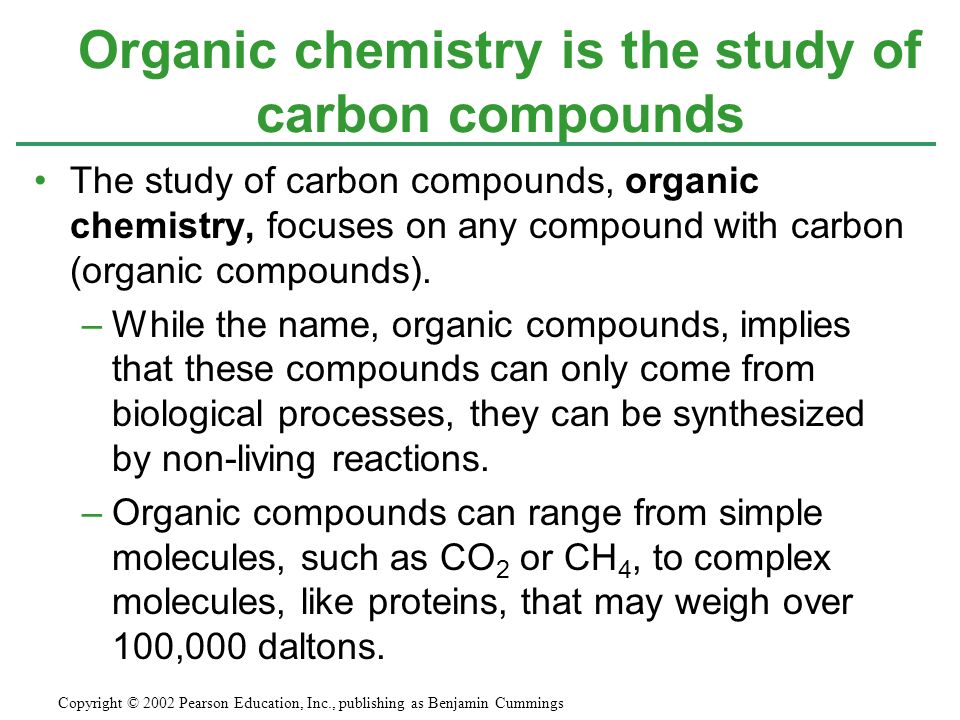Carbon is a unique element that forms the basis of organic chemistry. Carbon can form covalent bonds with other carbon atoms and with other elements such as hydrogen, oxygen, nitrogen, and sulfur. These covalent bonds allow for the formation of complex organic molecules with a wide variety of properties.
Organic molecules can be classified into several categories based on their functional groups. Functional groups are specific groups of atoms that determine the properties and reactivity of the molecule. Some common functional groups include alcohols, aldehydes, ketones, carboxylic acids, amines, and esters.
Organic reactions involve the breaking and forming of covalent bonds in organic molecules. There are several types of organic reactions, including addition reactions, elimination reactions, substitution reactions, and oxidation-reduction reactions.
Addition reactions involve the addition of a molecule to a carbon-carbon double bond or a carbon-carbon triple bond. For example, the addition of hydrogen gas to an alkene results in the formation of an alkane.
Elimination reactions involve the removal of a molecule from a carbon-carbon double bond or a carbon-carbon triple bond. For example, the removal of water from an alcohol results in the formation of an alkene.
Substitution reactions involve the replacement of one atom or group of atoms in a molecule with another atom or group of atoms. For example, the substitution of a halogen atom for a hydrogen atom in an alkane results in the formation of a haloalkane.
Oxidation-reduction reactions involve the transfer of electrons between two molecules. For example, the oxidation of an alcohol to a ketone involves the loss of electrons from the alcohol molecule and the gain of electrons by the oxidizing agent.
Organic chemistry is important in many fields, including medicine, materials science, and agriculture. Organic molecules are the basis of many important drugs, including antibiotics, analgesics, and chemotherapeutic agents. Organic chemistry is also important in the development of new materials, such as polymers and plastics. In agriculture, organic chemistry is used to develop new pesticides and fertilizers.
In conclusion, organic chemistry is a fascinating and important branch of chemistry that involves the study of carbon-based molecules and their properties, reactions, and applications. Understanding the basics of organic chemistry can provide insight into the behavior of organic molecules and their role in many processes and applications.


